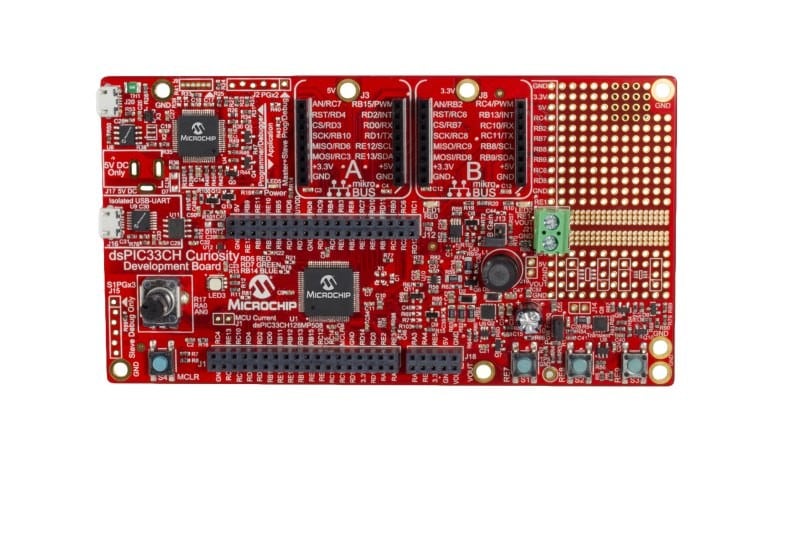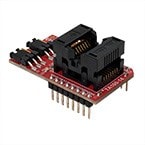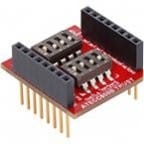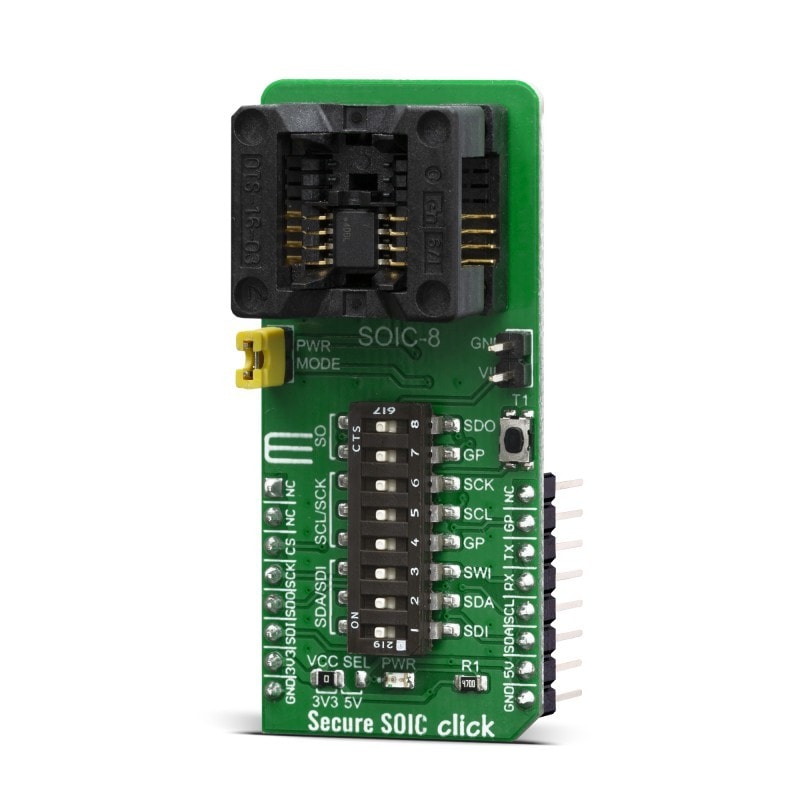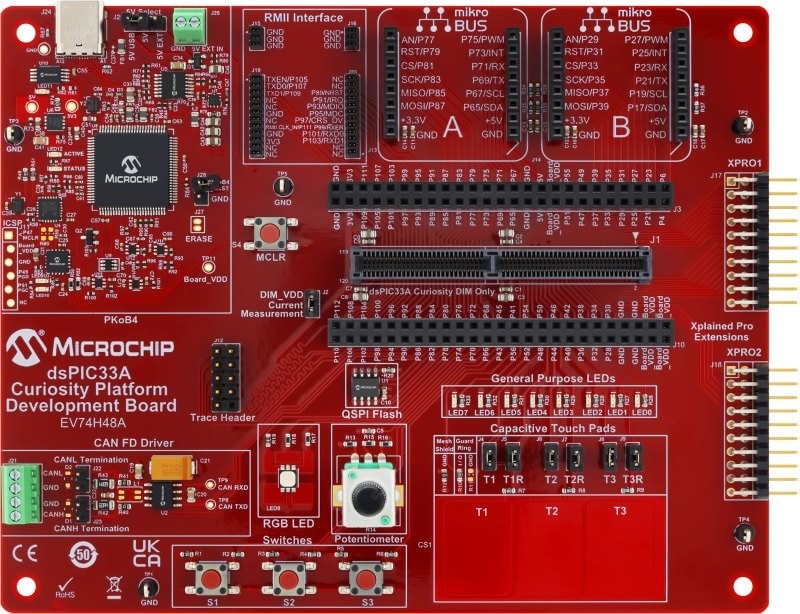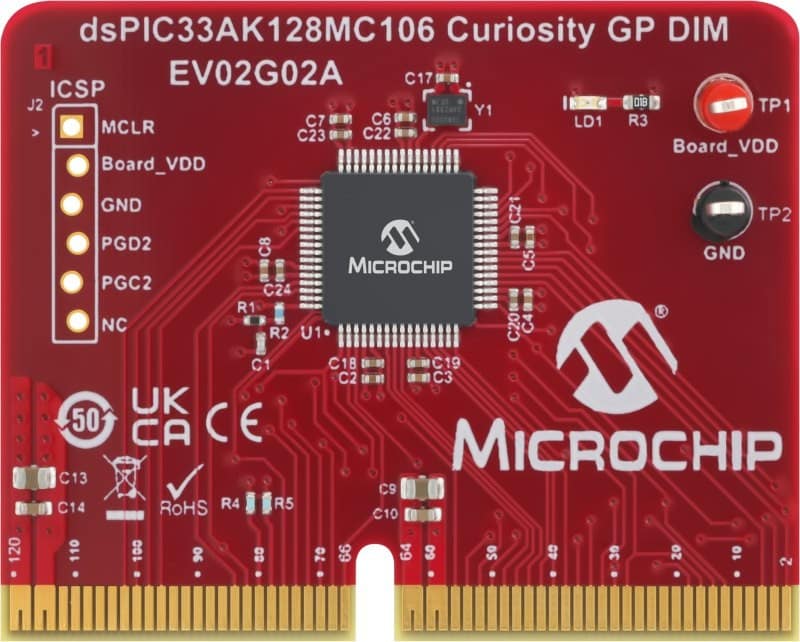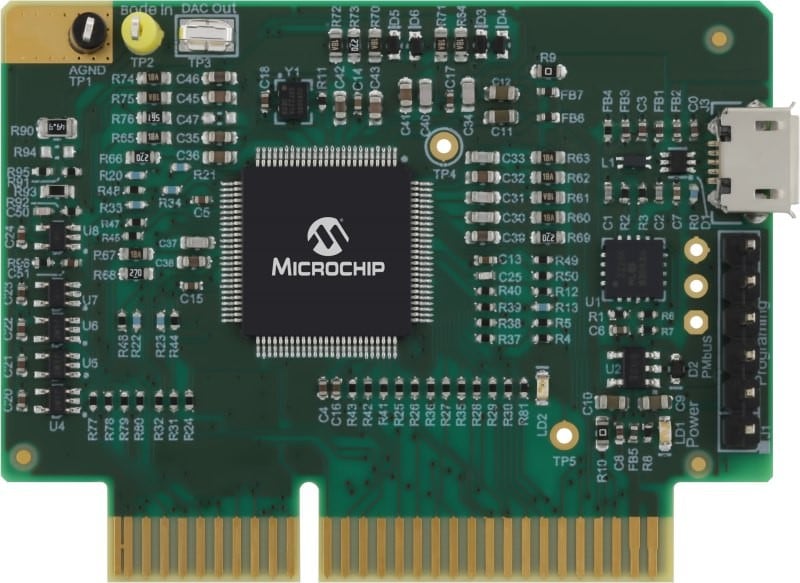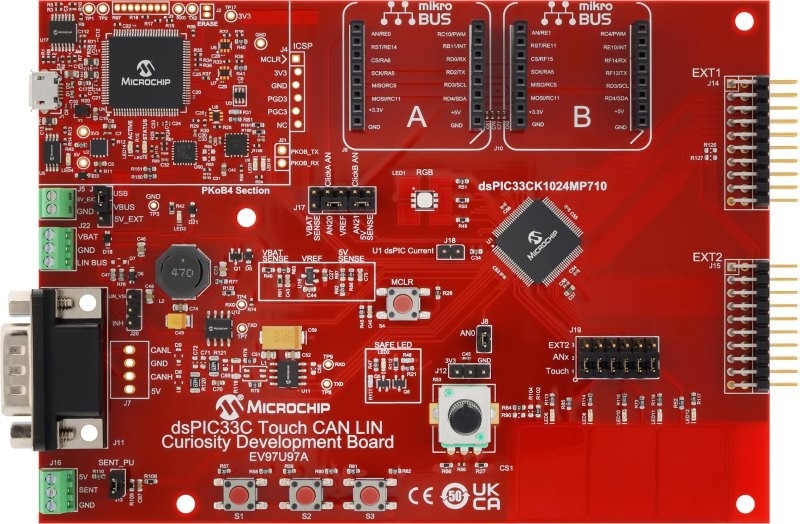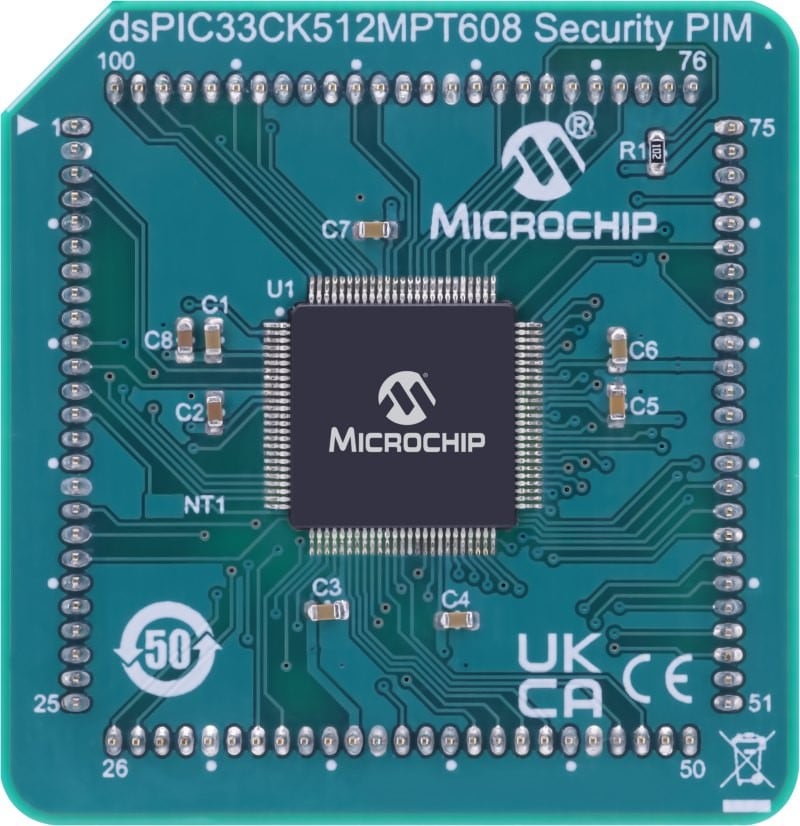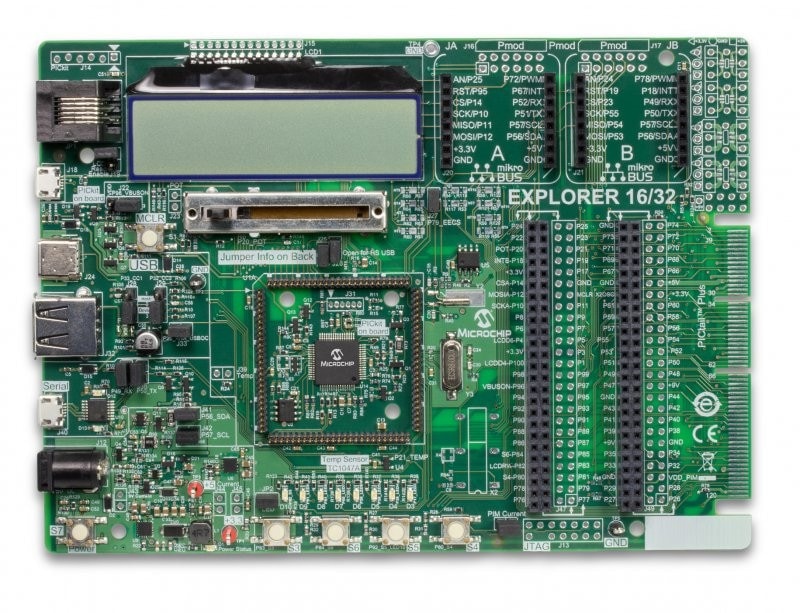Robust Security for Embedded Systems
Protecting embedded systems with robust security is essential in Internet of Things (IoT), automotive, medical, consumer, wireless, industrial and other connected designs. Security standards are available and constantly evolving to reinforce requirements of IoT applications. Many automotive Original Equipment Manufacturers (OEMs) are including security in their design specifications to protect Electronic Control Units (ECUs) in connected vehicles from attacks.
No matter what market or application they address, these security specifications all contain similar requirements:
- Unique passwords for all devices without default passwords
- Secure storage to isolate sensitive cryptographic keys
- Firmware verification at boot to ensure integrity before execution and after software updates
- Secure communication between devices or ECUs and the external world
Embedded Security With dsPIC33 DSCs
Watch this video to learn how our dsPIC33C DSCs work together with security ICs to implement robust system-level security.
dsPIC33A DSCs
Real-Time Control, Functional Safety, Advanced Analog
- Security module for device locking, configurable Flash access control and Immutable Root of Trust (IRT)
- Immutable secure boot
- Secure firmware upgrade (with live update)
- IP protection
- Secure debug
- Flash configurable as One-Time Programmable (OTP) memory
- Specialized features for digital power, motor control, advanced sensing, touch and high-performance designs
- Automotive AEC-Q100 Grade 0 qualified
dsPIC33C MPT DSC with Integrated HSM
Real-Time Control, Functional Safety, Robust Security
- Robust security with the simplicity of an MCU
- Off-die secure subsystem that is compliant with the EVITA Full Specification for automotive security
- Immutable secure boot
- Secure firmware upgrade (with live update)
- Secure on-board communication and message authentication
- Electronic Control Unit (ECU) authentication
- WPC 1.3 Qi® high-power wireless charger authentication
- IP protection
- Disable debug mode
- Flash configurable as One-Time Programmable (OTP) memory
- Specialized features for digital power, motor control, advanced sensing, touch and high-performance designs
- Automotive AEC Q100 Grade 1 qualified
dsPIC33C DSCs
High-Performance Dual- and Single-Core DSCs, Functional Safety
- 100 MHz performance for real-time control and deterministic response
- CodeGuard security and Flash OTP for secure, immutable boot and firmware upgrades
- Excellent for high-performance embedded, digital power, motor control and functional safety applications requiring security
- For use with our ATECC608 or TA100 secure elements for robust security
Our high-performance dsPIC33C Digital Signal Controllers (DSCs), combined with our ATECC608 CryptoAuthentication™ and TrustAnchor100 (TA100) CryptoAutomotive™ security ICs, provide robust security for your designs.
Our dsPIC33C DSCs deliver high performance, low power consumption and an application-specific feature set for low-power security, sensor interfacing, real-time control, functional safety, digital power conversion, Qi® wireless charger and motor control applications.
dsPIC33 DSCs for Your Secure Applications
dsPIC33 DSC Development Ecosystem for Secure Applications
- dsPIC33A DSCs
- dsPIC33C and dsPIC33C-MPT DSCs
Secure Boot and Secure Firmware Upgrades: dsPIC® Bootloader Library
The bootloader in MPLAB® Code Configurator (MCC)/MPLAB Harmony leverages the hardware- security features of the dsPIC33A and dsPIC33C to implement secure boot and secure firmware upgrades. This library can also be used for applications using the dsPIC33 DSCs with ATECC608 and TA100.
CryptoAuthLib Library
Designed to work with the ATECC608 CryptoAuthentication and TA100 CryptoAutomotive devices, this software support library is available with MCC as a component of any application or device driver that requires crypto services from a crypto coprocessor. It works seamlessly with the dsPIC33C DSCs.
OCP Power Supply – SPDM Solution Demonstration Application
This demo application utilizes a dsPIC33C MPT secure DSC or dsPIC33C DSC in conjunction with the TA100 CryptoAutomotive™ security IC to implement the Security Protocol and Data Model (SPDM) specification. This enables a digital power solution that satisfies the security requirements for an OCP-compliant power supply.


Security Webinars
Join our security experts and partners to learn about the latest trends and new developments for safeguarding your designs.

Technical Training Courses on Embedded Security
Available for free and on demand from Microchip University, our dsPIC Bootloaders Using MCC: Device Side offers a live demonstration of implementing a bootloader, secure boot and secure firmware upgrades.

dsPIC® DSC Bootloaders Using MCC–Device Side
Focuses on developing a secure 16-bit bootloader and a generic bootloader with dsPIC33 DSCs

Cryptography Primer
Fundamentals of symmetric and asymmetric cryptography and how to apply each in real-world situations
Microchip's Coordinated Vulnerability Disclosure Process
In the event of the discovery of a vulnerability in any of our products, tools, software or firmware solutions, our Product Security Incident Response Team (PSIRT) is set up to ensure that the vulnerability is mitigated and communicated responsibly. Use the link below to follow our coordinated disclosure process to report your findings.
- dsPIC33A DSCs
- dsPIC33CK MPT DSCs with Integrated HSM
- dsPIC33C DSCs for Secure Designs
- CryptoAuthentication ICs
- CryptoAutomotive ICs
Similar Devices

Cryptography Primer


